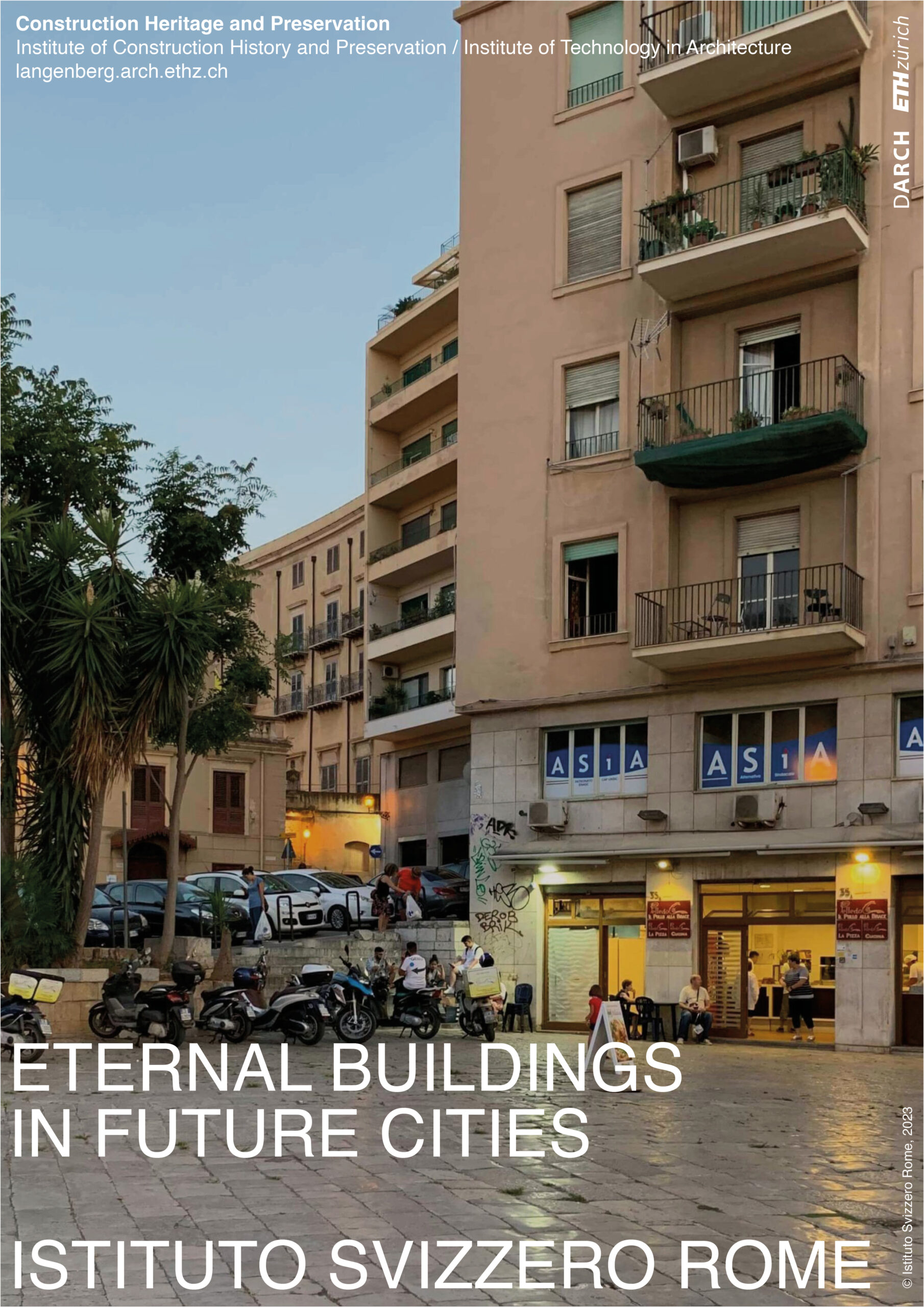
Wann: 23.–24. November 2023
Wo: Istituto Svizzero, Via Liguria 20, Rom und Online via Zoom
Weitere Informationen und Anmeldung siehe hier
Buildings and the public urban space have a close relationship and shape each other. The interdisciplinary conference Eternal buildings in future cities will explore this relationship. On the one hand, it is dedicated to the question of how houses will have to be designed, planned, and built in the future to be used and maintained as long as possible. On the other hand, it focuses on the public space in the constantly changing urban and social fabric. What kind of urbanism and architecture allows people to build a relation with their neighborhood and their city?
Our Western building culture has always been characterized by the principle of durability of materials and constructions. Houses should be constructed to be durable and as low-maintenance as possible. At the same time, houses that are continuously maintained and cared for can of course be durable despite the use of impermanent materials.
The prevailing trend in large parts of Europe to demolish buildings prematurely and replace them with new buildings shows that the useful life of a house is not only determined by the life of its components alone, but by a wide variety of aspects – beyond materiality and construction. As part of the real estate economy and land price policy, for example, houses are subject to developments that are only influenced to a limited extent or not at all by their material value. However, at stake are also functionality (polyvalence and redundancy of spaces), user/ownership (who uses a house, who owns it?), the adaptability and reparability of houses as well as legal framework conditions and norms.
The conference presents four panels to discuss challenges and potentials of today’s building culture in (future) cities, from the maintenance, preservation, durability, and adaptability of building constructions to social questions regarding the urban space and housing.
In collaboration with ETH Zurich and Tor Vergata University of Rome.
Organizing board:
Dr. Maria Böhmer
Prof. Dr. Tullia Iori
Prof. Dr. Silke Langenberg
Prof. Dr. Elli Mosayebi